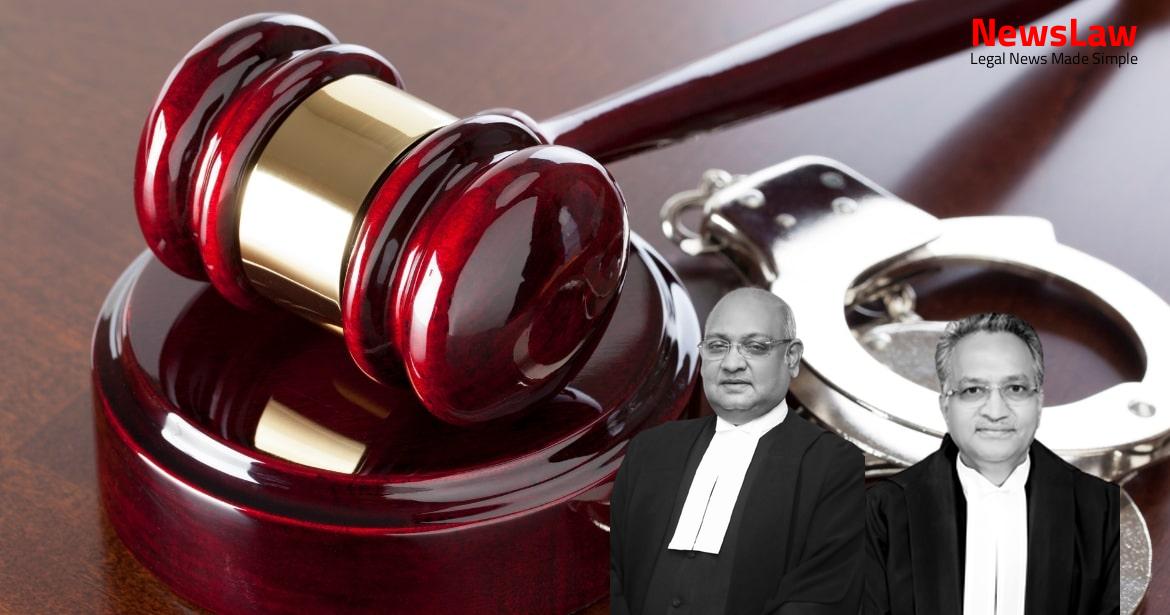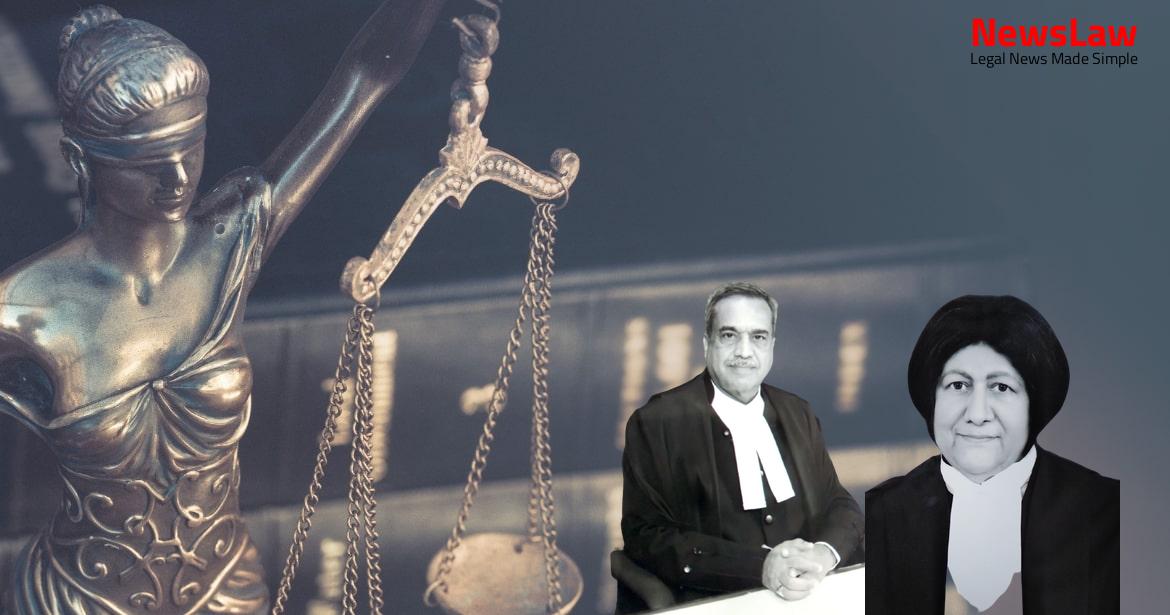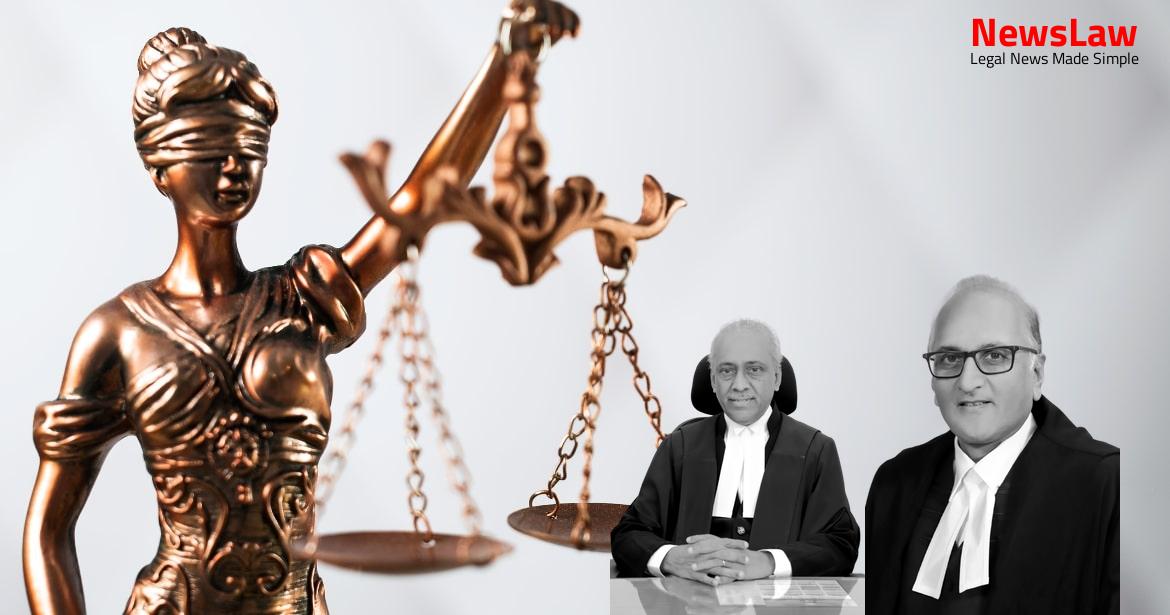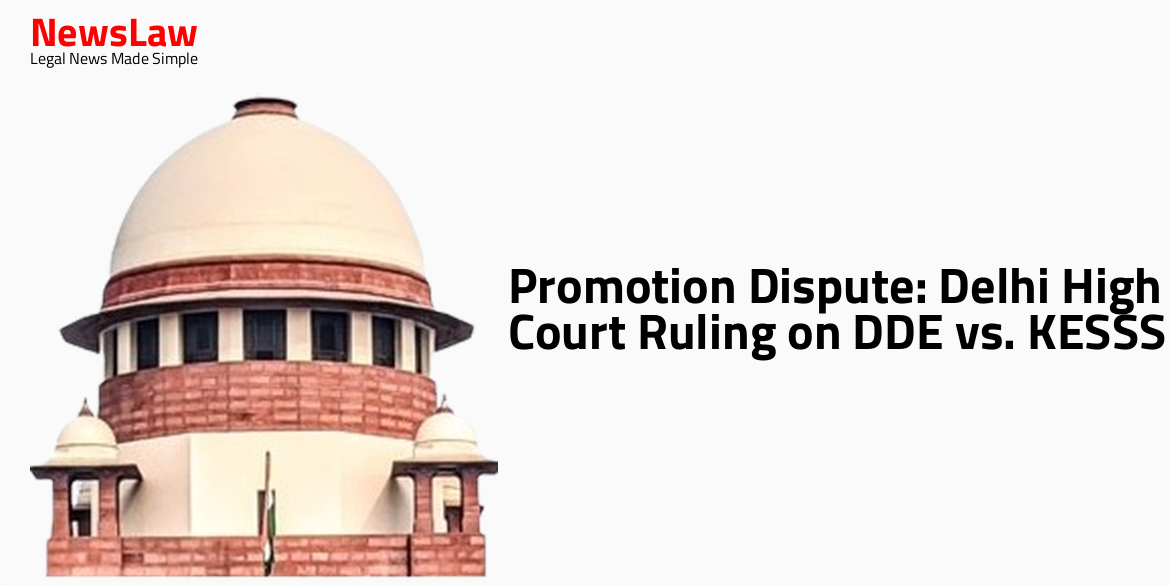In a recent landmark judgment by the Supreme Court of India, a ruling was made regarding compensation for loss of dependency in a case involving the major, earning sons of the deceased government employee, Smt. Sunheri Devi. The Court addressed key aspects such as the application process under Section 166 of the Motor Vehicles Act, 1988, the entitlement of legal representatives to compensation, and the distinction between financial assistance under the 2006 Rules and compensation under the 1988 Act.
Facts
- The appellant (insurance company) disputed the claim for compensation for loss of dependency by the deceased’s major, earning sons (Respondent Nos. 1 and 2).
- The appellant argued that the family was entitled to financial assistance under the Haryana Compassionate Assistance to the Dependants of Deceased Government Employees Rules, 2006.
- The total compensation awarded was Rs. 17,40,532/- with interest at 9% per annum.
- The Tribunal found the accident occurred due to the rash and negligent driving of the offending vehicle, a dumper/tipper.
- The driver and owner of the offending vehicle provided valid documents, while the appellant failed to prove any violations of the insurance policy terms.
- Even though Respondent Nos. 1 and 2 were major and earning, they were deemed legal heirs of the deceased entitled to compensation.
- The Tribunal computed the compensation based on the deceased’s monthly salary, net income, and deducted 50% for personal expenses.
- The claim petition was filed by the major sons of the deceased, Smt. Sunheri Devi, who was a peon at the office of Tehsildar, Uchana.
- The driver, owner, and insurer of the offending vehicle were held jointly and severally liable for the compensation.
- The date of birth of the deceased was 1.4.1967 and due for retirement on 31.3.2027, with a multiplier of ’13’ applied.
- The High Court deducted 50% of the financial assistance under the 2006 Rules instead of the entire amount as requested by the appellant.
- The compensation under conventional heads was increased from Rs.25,000/- to Rs.30,000/- by the High Court.
- The High Court reduced the compensation awarded by the Tribunal by Rs.4,84,716/- based on the deduction of financial assistance as per the 2006 Rules.
- The High Court considered monthly salary, benefits of future prospects at 30%, a multiplier of ’13’, and deducted personal expenses at 50% to calculate loss of dependency at Rs.23,44,672/- for the appellant.
- In addition, the High Court calculated loss of dependency for loss of pension at Rs.5,46,000/- by considering monthly pension, applying a multiplier of ’13’, and deducting personal expenses at 50%.
- The total compensation payable by the appellant as determined by the High Court was Rs.29,20,672/-.
- The High Court relied on the judgment in Reliance General Insurance Co. Ltd. v. Shashi Sharma and Ors. for assessing compensation.
- The Tribunal was noted to have wrongly assessed loss of dependency on take-home salary instead of the drawing salary, and did not consider the family pension received by the deceased if she had been alive.
Also Read: Land Acquisition Challenges for Integrated Infrastructure Project
Issue
- Section 166 of the Motor Vehicles Act, 1988 outlines the application process for compensation in case of accidents.
- Legal representatives of the deceased can file for compensation under clauses (c) of sub-section (1) of Section 166.
- The question at hand is whether major sons of the deceased, who are married and employed, can claim compensation under the Act.
- The legal representatives may be entitled to compensation under the conventional heads.
- Clarification is needed on whether the amount receivable by legal representatives under the 2006 Rules should be deducted in full or in part.
Also Read: Legal Interpretation of Mortgage Validity in Auction Dispute
Arguments
- Claim for loss of dependency is unavailable to the major sons of the deceased who were married and gainfully employed.
- They may be entitled only to compensation under conventional heads as per previous judgments.
- The appeal was filed primarily on the ground of error in the deduction percentage from compensation and under the 2006 Rules’ financial assistance assumption.
- The High Court should have considered the dependency of the sons on the deceased and their deprivation of love, affection, and income.
Also Read: Interpretation of Provisions in the 1946 Act: Jurisdiction of the CBI
Analysis
- Clause (c) of Section 166(1) of the Act allows any legal representative of the deceased to claim compensation.
- The application for compensation can be made to the Claims Tribunal where the accident occurred, where the claimant resides or carries on business, or where the defendant resides.
- If not all legal representatives join the claim, the application must be made on behalf of all, and those not joining will be impleaded as respondents.
- Even if a major married son is not fully dependent on the deceased, he is still considered a ‘legal representative’ under the Act.
- The Act does not define the term ‘legal representative,’ as highlighted in the case of Manjuri Bera.
- The Claims Tribunal has the responsibility to adjudicate the claims and determine just compensation.
- The Court was analyzing a case involving Section 140 of the Act concerning a married daughter’s claim.
- Any amount received by dependents under ‘pay and allowances’ cannot be double-paid under Rule 5(1) of the 2006 Rules.
- The 2006 Rules provide financial assistance to family members of deceased employees, not covered under the 2006 Rules.
- Legal representatives, even if major sons earning, can claim, but cannot claim under Rule 5(1) of the 2006 Rules.
- The Court highlighted the difference between financial assistance under 2006 Rules and compensation under the 1988 Act.
- The Tribunal must consider applications from legal representatives for compensation regardless of dependency.
- Pensionary benefits available to the family of a deceased employee are not deductible for calculating dependency loss.
- The Court makes a distinction between the financial assistance received under 2006 Rules and compensation payable under the 1988 Act.
- Dependency on deceased’s income is a factor for just compensation consideration, especially for dependents like children working as laborers.
- Evidence regarding financial assistance under 2006 Rules is essential for determining just compensation.
- High Court’s assumption on family pension entitlement after the death of the deceased was incorrect.
- The Court noted the period for which financial assistance is received before family pension becomes payable under the 2006 Rules.
- The Tribunal should exclude amounts received under family pension from compensation.
- Legal representatives have the right to claim compensation, and it is the Tribunal’s duty to determine just compensation.
- The Tribunal should consider affidavits from legal representatives regarding the receipt of financial assistance before releasing compensation.
- Compensation should be calculated based on net-salary after necessary deductions.
- Rules are considered regarding family pension entitlement and financial assistance under 2006 Rules.
- Legal representatives may receive ex gratia assistance but should not receive double benefits.
- The deduction of amount receivable under 2006 Rules from compensation should be done as per established court decisions.
- The legal representative of the deceased would inherit the estate, not limited to legal heirs only, but also includes heirs and persons representing the estate without title.
- A legal representative is not limited to a spouse, parent, or child but can be anyone suffering due to the death of a person in a motor vehicle accident.
- Compensation forms part of the estate of the deceased.
- Under the 2006 Rules, 50% of the amount receivable by the legal representatives of the deceased for financial assistance needs to be deducted from the compensation amount.
- Legal representatives, even if there is no loss of dependency, are entitled to compensation.
- There is a distinction between the ‘right to apply for compensation’ and ‘entitlement to compensation’.
- Benefits like family pension, life insurance, provident fund, etc., provided to dependants of the deceased government employee cannot be deducted from compensation.
- Appellants are entitled to the amount receivable by the dependants of the deceased government employee under Rule 5(1) of the 2006 Rules for financial assistance equivalent to the loss of pay and wages.
- Rule 5(2) of the 2006 Rules specifically denies family pension as per normal rules.
- A person, who may or may not be a legal heir, can represent the estate of the deceased.
- The High Court included the pension amount received by the deceased as part of the loss of dependency calculation.
- The Supreme Court disagreed with this inclusion, stating that the pension was payable only to the deceased as a widow and not as her income.
- The family pension received by the deceased in her own right could not be considered as her income when calculating compensation.
Decision
- The compensation amount is to be paid to the claimants upon giving an undertaking to indemnify the insurance company.
- The amount along with 9% interest per annum is payable, subject to the outcome of their application for financial assistance under the 2006 Rules.
- A total sum of Rs.31,96,230/- is payable to the claimants as rounded off.
- The compensation is to be calculated based on loss of dependency and future prospects, deducting one-third amount towards personal expenses of the deceased.
- The multiplier ’13’ applied by the Tribunal and High Court does not need interference.
- The recalculated amount payable towards compensation is based on loss of dependency due to loss of income calculated at Rs.31,26,229.60/- along with additional conventional heads sum of Rs.70,000/-.
- The claimants can withdraw the compensation amount only after filing an affidavit-cum-declaration confirming they have not received, nor would claim, any amount towards financial assistance under the 2006 Rules.
Case Title: NATIONAL INSURANCE COMPANY LTD. Vs. BIRENDER (2020 INSC 34)
Case Number: C.A. No.-000242-000243 / 2020



